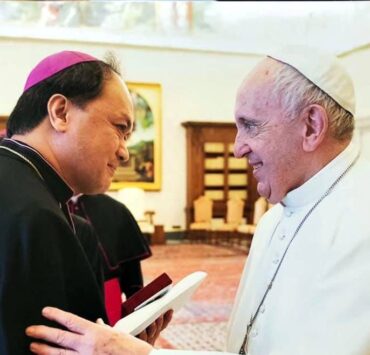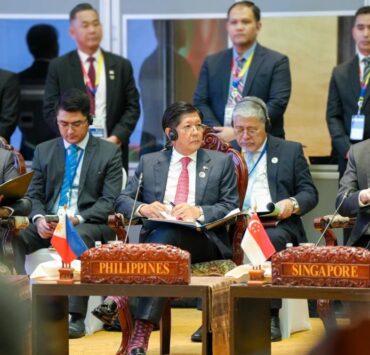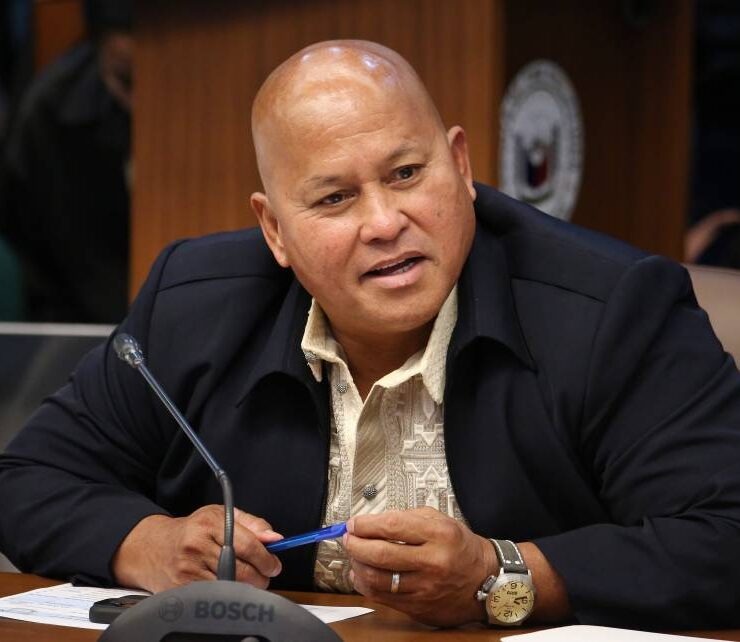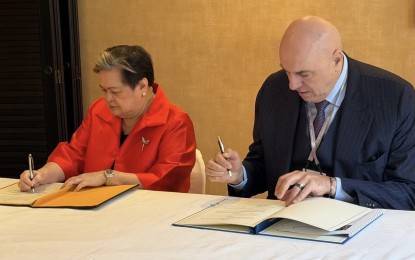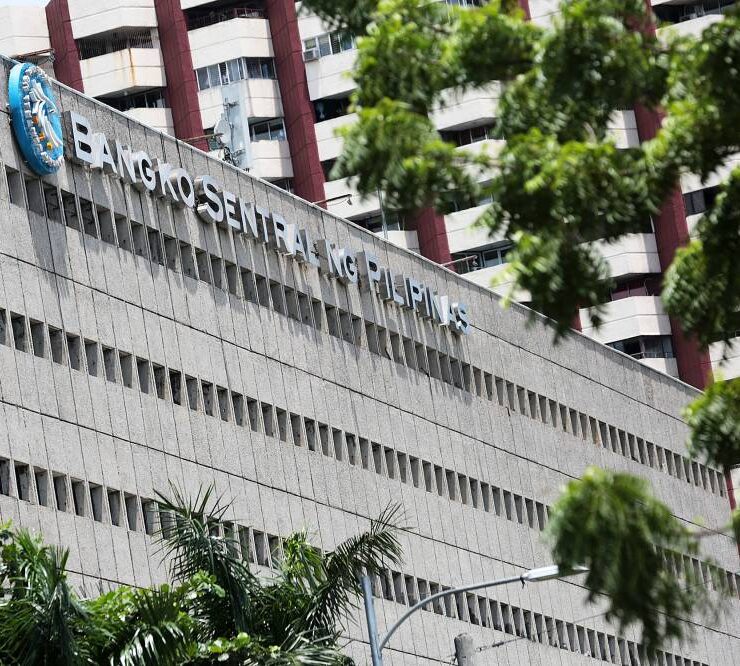DOJ to build drug war case on House report
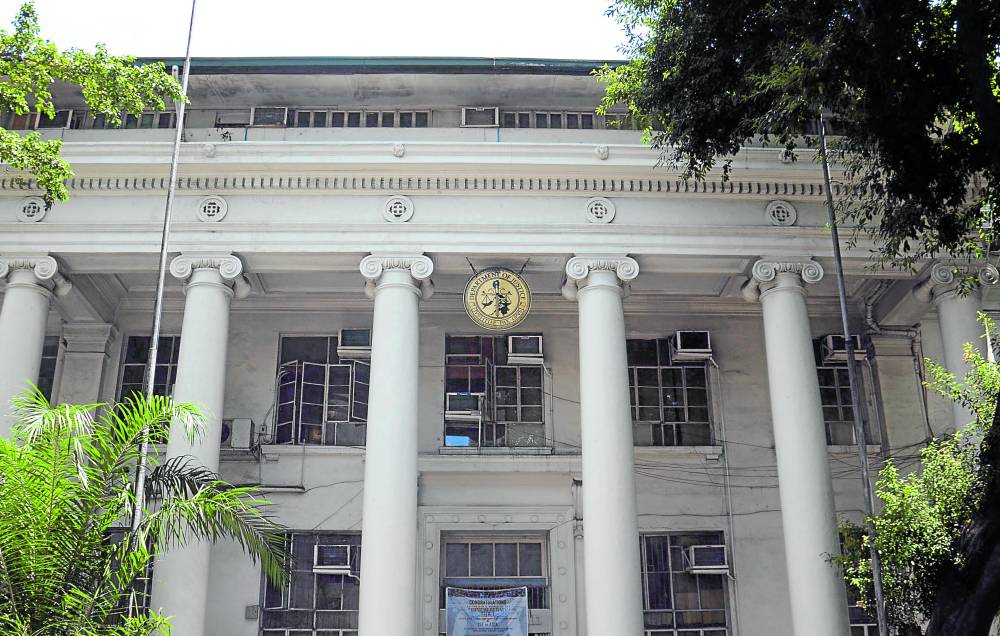
The Department of Justice (DOJ) on Sunday said it would start a preliminary investigation and case buildup on the killings of high-profile individuals during the drug war of former President Rodrigo Duterte after the House of Representatives refers its committee report on the matter.
Justice Undersecretary Raul Vasquez said in a Viber message to reporters that the DOJ could also initiate the preliminary investigation when somebody files a complaint against those responsible.
“Here, it could be the police or private complainants. There must be an initiatory process,” he said.
Vasquez was addressing an inquiry about whether the DOJ would conduct a motu proprio investigation or direct the National Bureau of Investigation to look into the killings of Chinese drug lords at the Davao Prison and Penal Farm, Philippine Charity Sweepstakes Office (PCSO) Board Secretary Wesley Barayuga, and Tanauan Mayor Antonio Halili.
Duterte allegedly ordered the killings of the Chinese nationals who were stabbed to death in the Davao prison in 2016, based on testimonies from inmates who appeared before the House quad committee hearing in August.
In another hearing, Police Lt. Col. Santie Mendoza claimed that then Col. Edilberto Leonardo of the Davao Region office of the Criminal Investigation and Detection Group had allegedly instructed him to carry out the hit on Barayuga.
Mendoza recounted that when he hesitated, Leonardo claimed the operation had been ordered by retired Police Col. Royina Garma, a trusted Duterte aide who was appointed general manager of the PCSO in 2019.
These revelations during the House quad committee’s investigation have led the Philippine National Police and the NBI to reopen the 2020 Barayuga murder case.
In a separate inquiry last Friday, Garma told the House committee that Halili was assassinated by a team that included police officers.
Clarify roles
Following Garma’s allegations, PNP chief Gen. Rommel Francisco Marbil on Sunday urged former police heads to clarify their roles during the drug war.
“We take these allegations very seriously. We will thoroughly investigate Garma’s claims to ensure accountability and transparency within our ranks,” Marbil said in a statement.
During the House committee hearing, Garma also disclosed that Duterte offered cash rewards for every drug suspect killed.
Former PNP chiefs were supposedly aware of these operations and implicated Leonardo as a central figure in implementing the alleged scheme.
Leonardo resigned from his post as commissioner of the National Police Commission early October amid the ongoing probe.
The PNP chief vowed to implement measures “to strengthen public confidence and prevent similar abuses in future operations,” as he underscored the importance of restoring public trust in the PNP.
In her prepared affidavit, Garma said Duterte called her in May 2016 and ordered her to find him a PNP officer who would lead the government’s drug war similar to the “Davao model,” referring to the system “involving payments and rewards.”
An emotional Garma said she decided it was time to “speak the truth” about details of the bloody drug war “after considerable reflection.”
‘More to uncover’
House Assistant Majority Leaders Jefferson Khonghun and Francisco Paolo Ortega V on Sunday said they believed that the disclosures made by Garma were just the tip of the iceberg on the inner workings of the drug war.
Khonghun, Zambales representative, pointed out that Garma’s testimony “comes from the perspective of an insider who has not just the trust and confidence, or the eyes and ears of the former president, but even beyond that.”
“So, this is not something that cannot be easily ignored. This testimony definitely carries with it much credibility, most especially if other witnesses, including documentary evidence, will corroborate whatever Garma may have to say as a matter of public record,” he pointed out.
“Please take note that Garma’s explosive testimony before us involves not just hundreds, but thousands of lives lost to drug operations where even innocent children and teenagers were killed, all in the guise of combating the drug menace in the streets,” La Union’s Ortega noted.
“There is much more to uncover, and we are committed to getting to the bottom of these serious allegations. The quad comm will not stop until all the facts are laid bare because this is about accountability,” he stressed.
Standing invitations
In an interview on radio station dzBB’s “Bantay Balita sa Kongreso,” Rep. Robert Ace Barbers, quad committee head, said the panel was only waiting for the former president’s confirmation of whether or not he would attend the continuing inquiry, adding that they “would respect whatever his decision may be.”
The Surigao del Norte lawmaker noted that Rep. Bienvenido Abante Jr., House human rights committee chair, had again moved to invite Duterte so he could address the allegations against him, remarking that the quad committee members were “preparing intelligent questions” for the former president who had previously expressed willingness to face the panel as long as only “intelligent” queries were asked.
Similar standing invitations were given to Senators Ronald “Bato” dela Rosa and Christopher “Bong” Go, who have declared in media interviews that they would not participate in the inquiry and would wait instead until the issues reach the courts.
“We respect that. They are within their rights. But when [the quad comm] makes its recommendation in the committee report we would use as bases the gathered evidence, testimonies, and their statements in the media so there would be a semblance of listening to their views or opinions in these issues,” Barbers said in Filipino, even as he noted the downside that media statements were not made under oath.
Nevertheless, the lawmaker said the quad committee was open to getting affidavits from Go and Dela Rosa in lieu of their facing the super panel should they wish to air their side on the claims against them.
“We would accept those as long as they are sworn statements,” Barbers said. —WITH REPORTS FROM FRANCES MANGOSING AND JEANNETTE I. ANDRADE














